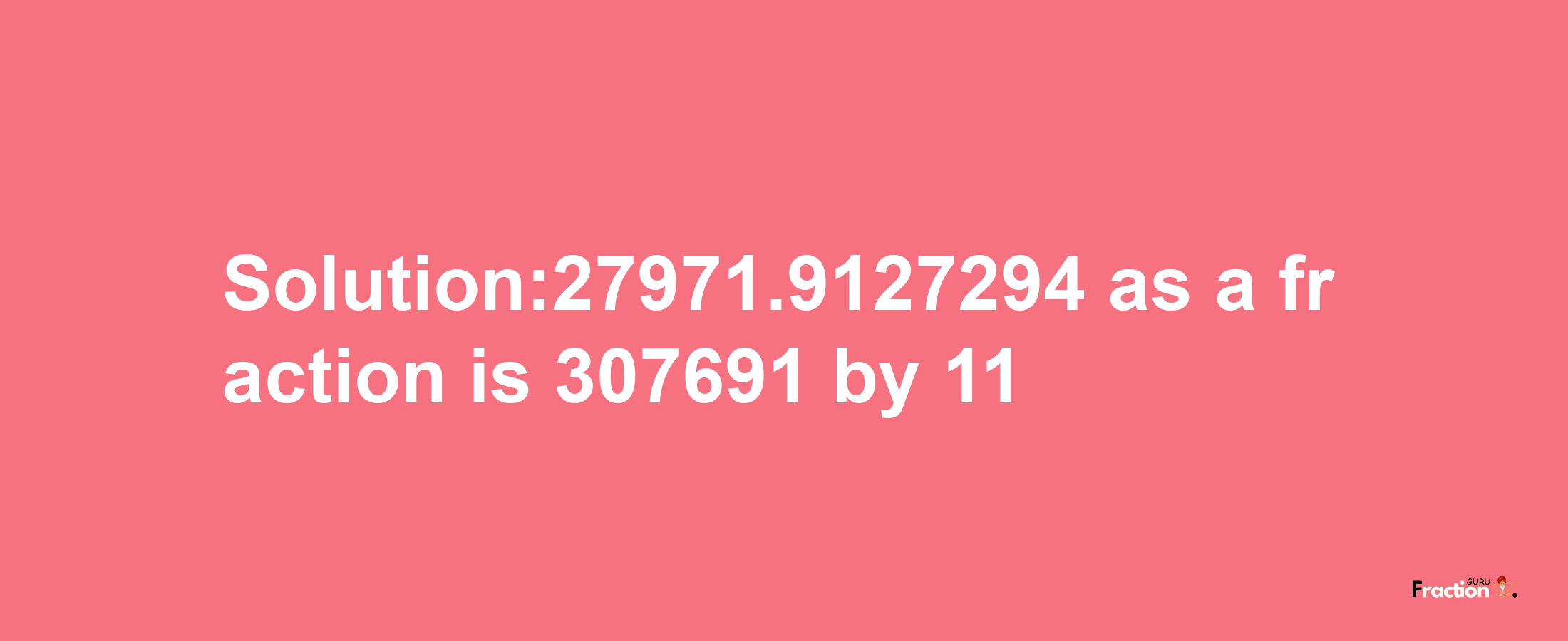Step 1:
The first step to converting 27971.9127294 to a fraction is to re-write 27971.9127294 in the form p/q where p and q are both positive integers. To start with, 27971.9127294 can be written as simply 27971.9127294/1 to technically be written as a fraction.
Step 2:
Next, we will count the number of fractional digits after the decimal point in 27971.9127294, which in this case is 7. For however many digits after the decimal point there are, we will multiply the numerator and denominator of 27971.9127294/1 each by 10 to the power of that many digits. So, in this case, we will multiply the numerator and denominator of 27971.9127294/1 each by 10000000:
Step 3:
Now the last step is to simplify the fraction (if possible) by finding similar factors and cancelling them out, which leads to the following answer for 27971.9127294 as a fraction:
307691/11 / 1


